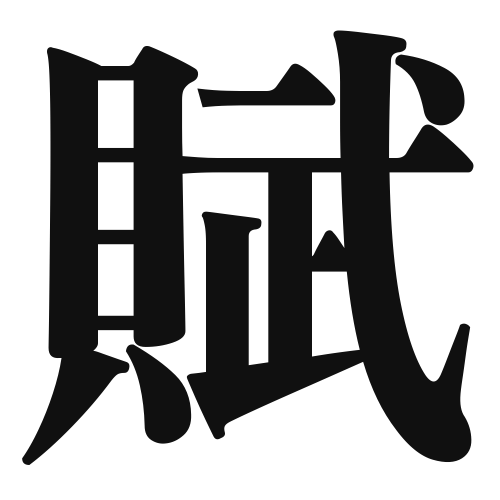1. Overview of Meaning
The kanji “賦” (fu) primarily means “to bestow” or “to assign.” It is often associated with the act of giving or distributing something, particularly in a formal or literary context.
2. Formation and Radical
Formation of the Kanji: The kanji “賦” is a compound character (会意文字) that combines elements to convey its meaning. It consists of the radical for “money” (貝) and the character “付” (to attach or assign), suggesting the idea of assigning value or wealth.
Radical: The radical of “賦” is 貝 (shell), which is often associated with money or valuables in kanji.
3. Examples of Usage
Common Words and Phrases: Some common phrases that include “賦” are “賦課” (fuka – taxation) and “賦詩” (fushi – to compose poetry).
Example Sentence in Daily Conversation: “彼は新しい税金を賦課された。” (Kare wa atarashii zeikin o fukasa reta – He was assigned a new tax.)
4. Synonyms and Antonyms
Similar Kanji: A similar kanji is “与” (yo), which also means “to give” but is more general and can refer to giving in various contexts, not just formal or monetary.
Opposite Kanji: An antonym is “奪” (datsu), which means “to take away” or “to seize,” representing the opposite action of giving or bestowing.
5. Cultural and Historical Background
Relation to Japanese Culture: The concept of “賦” is significant in Japanese culture, particularly in the context of literature and poetry, where the act of bestowing words or thoughts is highly valued.
Proverbs and Idioms: One relevant idiom is “賦与の精神” (fuyo no seishin), which refers to the spirit of giving and sharing, emphasizing the importance of generosity in society.
